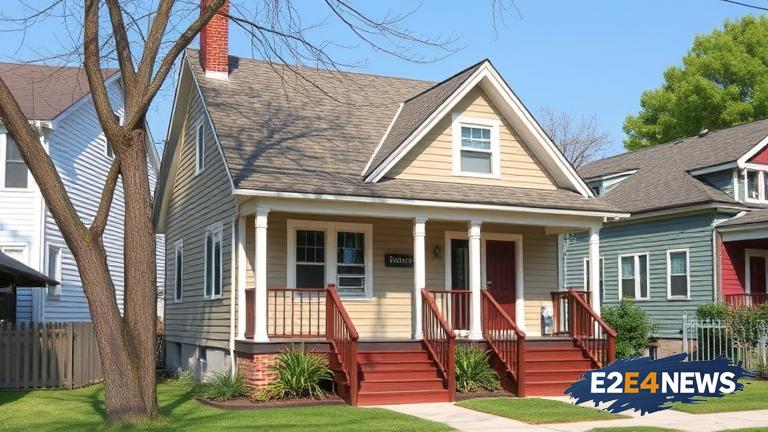A newly introduced bipartisan bill seeks to make it easier for homeowners to finance accessory dwelling units (ADUs), also known as in-law suites or granny flats. The proposed legislation aims to address the growing need for affordable housing and provide more options for intergenerational living. ADUs are secondary units built on a property with an existing primary residence, often used to house family members or renters. However, financing these units can be challenging due to strict lending regulations and high construction costs. The bill proposes to relax some of these regulations, allowing homeowners to more easily secure loans for ADU construction. This could lead to an increase in the number of ADUs being built, providing more affordable housing options for low-income families, students, and seniors. The legislation has garnered support from both Democrats and Republicans, who see it as a way to address the nation’s affordable housing crisis. Proponents of the bill argue that ADUs can help to increase housing density, reduce urban sprawl, and provide a more sustainable and environmentally friendly alternative to traditional single-family homes. Additionally, ADUs can serve as a source of rental income for homeowners, helping to offset mortgage payments and other expenses. The bill’s authors believe that by making it easier to finance ADUs, they can help to stimulate economic growth, create jobs, and improve the overall quality of life for American families. The proposed legislation has been welcomed by housing industry experts, who see it as a positive step towards addressing the nation’s housing affordability challenges. However, some critics have raised concerns about the potential impact of the bill on local zoning regulations and the environment. Despite these concerns, the bill’s supporters remain optimistic that it will pass into law, providing a much-needed boost to the nation’s affordable housing market. The bill’s progress will be closely watched by housing industry experts, policymakers, and advocacy groups in the coming months. As the nation continues to grapple with the challenges of affordable housing, the proposed legislation offers a promising solution that could have far-reaching benefits for American families and communities. With its potential to increase housing affordability, promote sustainable development, and support intergenerational living, the bill is an important step towards creating a more equitable and inclusive housing market. The bipartisan support for the bill is a positive sign that lawmakers are willing to work together to address the nation’s housing challenges, and its passage could have a significant impact on the lives of millions of Americans.
